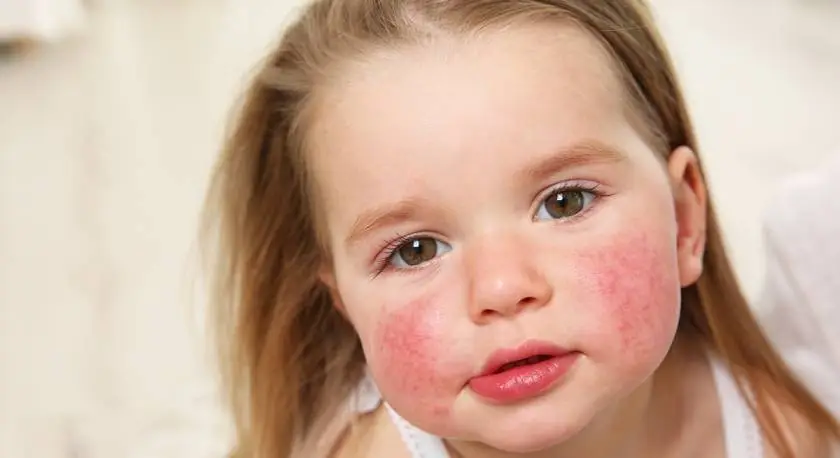
This content originally appeared on Beyond Type 1. Republished with permission.
By Christel Oerum
I’m a firm believer that there is no such thing as a “Diabetic Diet,” but that we each need to find the best diet for our bodies and mental happiness.
In the search for the diet that’s right for me, I tried the keto diet, and this is what happened.
Why I Decided to Try the Keto Diet
I’ve been living with type 1 diabetes since 1997 and didn’t pay much attention to my diet or followed any specific nutrition regime for the first 17 years. I just ate and adjusted my insulin to my food. And you know what, that worked pretty well for me.
Then in 2014, I started preparing for my first bodybuilding competition and I really had to focus on my diet in a way I never had before. Back then, my coach had me on a high protein, medium/low-carb, and very low-fat diet.
After that experience, I became fascinated with different nutrition approaches and I’ve tried out quite a few diets in the name of research and just plain curiosity.
What is so fascinating about nutrition is that every approach has its die-hard followers and I’m always curious to see if I’ll love it as much as they do.
So, in the name of research, I set out to try the keto diet on my own body.
How I Implemented the Keto Diet
The keto diet restricts the amount of carbohydrates and protein consumed, which means that you primarily rely on fats for your daily energy. The goal is to consume very few carbohydrates (~5% of your daily calorie consumption, or 20-50 grams max), thereby forcing your body to burn fat for fuel.
Fans of the keto diet usually like the approach because it supposedly helps with blood sugar management as well as weight management. And let’s face it, if you’re into bacon and cheese, it sounds very alluring.
Many say that they’ve seen weight loss even though they don’t pay attention to calories, simply because a diet high in fat is very satiating, making them feel full quickly so they eat less.
Based on all of this, I decided to eat less than 50 grams of carbs a day (including veggie carbs/fibers), about 80 grams of protein, and as much fat I needed to feel full without keeping a track of my calorie intake.
My Experience Following the Keto Diet

Image source: Beyond Type 1
At first, my experience was great. I enjoyed the cheese, nuts, seeds, and avocado that my diet predominantly consisted of.
When it came to my diabetes management, I saw a flatter blood sugar profile with fewer spikes on my Continuous Glucose Monitor (CGM) that I often see when I eat a more carb-heavy diet (which is not surprising since carb are what gets converted into glucose the fastest in the bloodstream).
But my experiment quickly went south. I started to become increasingly insulin resistant after only about a week, which meant that I needed more and more insulin to manage my blood sugars, even though I was eating very few carbs.
I still wasn’t seeing any major spikes in my blood sugars, but since fat slows down the release of glucose into the bloodstream, my blood sugar would continue to slowly creep up. To keep my blood sugars in-range, I had to increase my long-acting insulin significantly while micro-dosing my rapid-acting insulin more often.
The reason for the micro-doses rather than doing larger doses was to adjust my blood sugar without ending up with low blood sugar.
Not only did I become more insulin resistant and had a harder time managing my blood sugars, I also started to have a lot of digestive issues and was gaining weight at an alarming rate.
None of the last two issues are really a surprise.
- My digestive issue was most likely related to my diet being low in fibers and volume
- And when it comes to my weight gain, fats are very calorie-dense compared to protein and carbs and since I wasn’t monitoring my calorie intake, I was eating too many calories for my needs. I have a healthy appetite and fats alone were just not satiating enough to make me feel full quickly.
After about a month of sticking to the keto diet, I switched back to my moderate/low-carb way of eating. At that point I didn’t feel good, I was constantly bloated, couldn’t fit in my clothes, and my endo was not impressed with how negatively it was impacting my diabetes management.
If you only take one thing away from this post, I hope that it will be this: that you can (and should) try things out, and if they don’t work for you, then “cut your losses.”
It’s Not a Failure, It’s Just an Approach That Doesn’t Work for You
So maybe the keto diet intrigues you, or the Paleo or Vegan diet sounds more appealing. My recommendation would be to research the diet, talk to others who have tried it, assess if it might trigger any unwanted eating patterns, and then try it out if you like.
There are thousands of people with diabetes who follow any of the three diets I mention above with great results so they clearly work for a lot of people – they just don’t work for all people. It may take some experimentation to find the diet that works for you.
If you’re interested in trying the keto diet, you can find a keto meal plan with recipes on Diabetes Strong.
Post Views: 3
Related Post
 27
27 Jun
Effective Allergy Treatments for Kids: A Comprehensive Guide
Is your youngster experiencing a runny nose, sniffling, and bothersome eyes? Assist them with feeling improved with these regular sensitivity cures you can attempt at home. Does your kid have a runny nose, sniffling, and irritated eyes? They may be managing.
Read More 20
20 Jun
Journal Prompts for Mental Health: 7 Ideas to Explore
Journaling has a heap of psychological well-being benefits, however you don't necessarily have any idea what to expound on to get the worth out of a journaling meeting. That is where journaling prompts for treatment come in. More profound diary prompts.
Read More 13
13 Jun
10 Natural Health and Nutrition Tips That Are Evidence-Based
If you have any desire to help your wellbeing and prosperity, there are a lot of regular and home solutions for browse, going from keeping away from singed meats and added sugars to rehearsing reflection. With regards to understanding what's sound,.
Read More 04
04 Jun
4 Tips for Preventing Food Allergies at School
Most guardians send their kids off to start another school year with energy. However, guardians of youngsters with extreme food sensitivities frequently have genuine apprehension. They frequently wonder: Will their kids inadvertently eat the food they're hypersensitive to? Food sensitivities are.
Read More